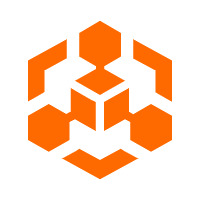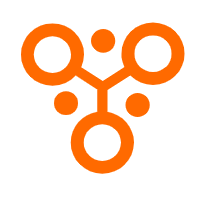A blockchain is a distributed database of transactions, validated and maintained by a network of computers called nodes.
The blockchain is a decentralized network. It is based on a P2P (Peer-to-Peer) system.
Transactions are recorded in an efficient, verifiable and robust way. But nobody controls these transactions.
A blockchain is a chain of blocks. Each block contains a list of transactions and a pointer to the previous block. This pointer takes the form of a hash which ensures that the data in the blocks cannot be falsified.
The first block in the chain is called the genesis block.
By tracing the history of the chain, we can see who had what amount of money.
A blockchain is a decentralized record, or ledger, of transactions made on the blockchain network.
Crypto-currency is the medium of exchange based on the blockchain.
First of all, the token associated with the blockchain can be exchanged for a real value. Then, the transactions are immutable. They cannot be modified thanks to the use of a cryptographic hash function.
Moreover, the blockchain is decentralized. The data is therefore shared directly between peers, without going through a trusted third party.
Moreover, the blockchain allows to reduce processing times in a general way. Thus, an inter-border transfer can be done much faster, even if the transaction time of a blockchain is much longer than the transaction time of a credit card.
And in a broader sense, the blockchain makes it possible to eliminate intermediaries. This elimination of intermediaries reduces transaction costs.
The blockchain has an extremely high fault tolerance.
Then, transactions are public. They are therefore verifiable by anyone. This brings transparency and security.
And if the blockchain supports smart contracts, it can automate business processes. The blockchain opens up new uses, such as monitoring quality assurance. One example is food safety recall.
Blockchains are not perfect. They are new and can get bad publicity because they are sometimes still associated with scams.
Blockchain is constantly evolving, especially in order to solve scalability issues. These problems will have to be solved before a much broader evolution of blockchains.
The speed of transaction is still too often slow even if some blockchains have brought a solution.
By Bruno Delb
Test the system security as you Test as Code the application security
The DevOps Canvas to collect and organize project information

8 posts | 1 followers
FollowAlibaba Clouder - April 8, 2019
Clouders - January 11, 2022
Alibaba Clouder - December 21, 2020
Alibaba Clouder - January 4, 2021
vic - August 30, 2019
Alibaba Clouder - July 11, 2018

8 posts | 1 followers
Follow Blockchain as a Service
Blockchain as a Service
BaaS provides an enterprise-level platform service based on leading blockchain technologies, which helps you build a trusted cloud infrastructure.
Learn More LedgerDB
LedgerDB
A ledger database that provides powerful data audit capabilities.
Learn More IDaaS
IDaaS
Make identity management a painless experience and eliminate Identity Silos
Learn More Elastic Desktop Service
Elastic Desktop Service
A convenient and secure cloud-based Desktop-as-a-Service (DaaS) solution
Learn MoreMore Posts by Bruno Delb